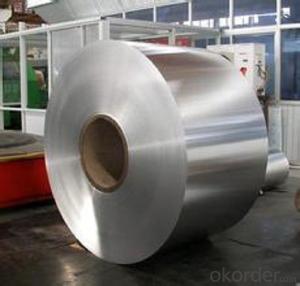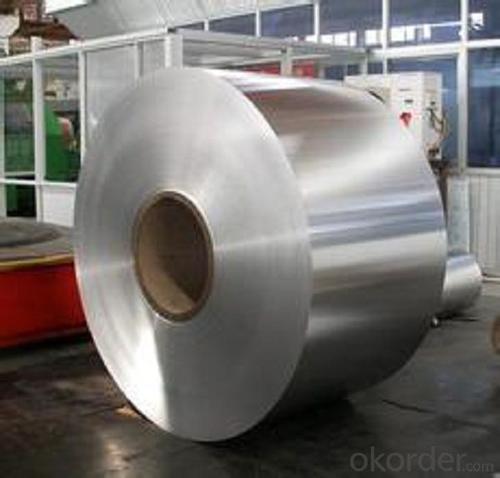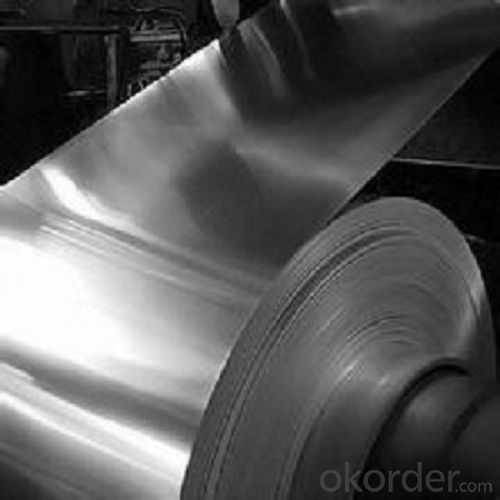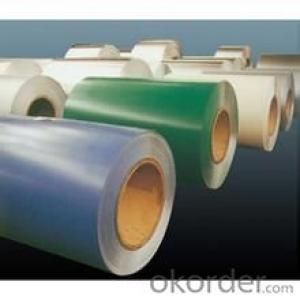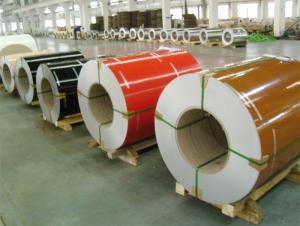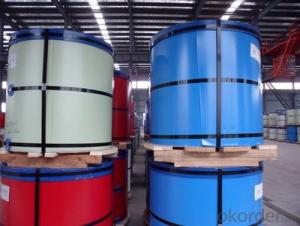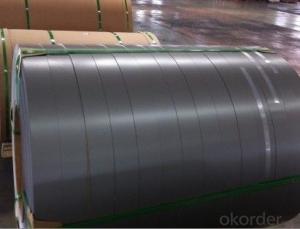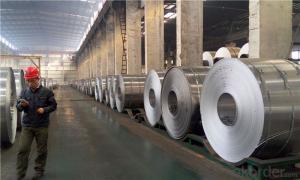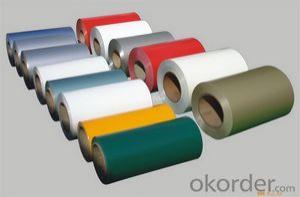Acl Aluminum Coils Todd Rahman 3003 Alloy Anti-Corrosion Insulation Aluminum Coil
- Loading Port:
- Shanghai
- Payment Terms:
- TT OR LC
- Min Order Qty:
- 2.5
- Supply Capability:
- 5000 m.t./month
OKorder Service Pledge
OKorder Financial Service
You Might Also Like
Specification
3003 Alloy Anti-corrosion Insulation Aluminum Coil
lProduct Information
| Aluminum coil | Thickness mm | Width mm | Temper |
| 1050 1060 1070 1100 1200 1235 | 0.2-4.0 | 20-1500 | O H12 H14 H16 H18 H22 H24 H26 |
| 4.0-12.0 | 1500-2200 | H111 H112 | |
| 3003 3004 3A21 3105 | 0.2-4.0 | 20-1500 | O H12 H14 H16 H18 H22 H24 H26 |
| 4.0-12.0 | 1500-2200 | H111 H112 | |
| 5052 5754 5083 5A05 | 0.2-4.0 | 20-1500 | O H12 H14 H16 H18 H22 H24 H26 |
| 4.0-12.0 | 1500-2200 | H111 H112 | |
| 6061 6063 6082 | 0.15-200 | 900-2200 | O-H112 T |
| 8011 8021 8079 | 0.2-4.0 | 20-1500 | O H12 H14 H16 H18 H22 H24 H26 |
| 4.0-12.0 | 1500-2200 | H111 H112 |
lPackaging & Delivery Details
Packaging: Standard seaworthy packing
Delivery: About 25 days after received your advance
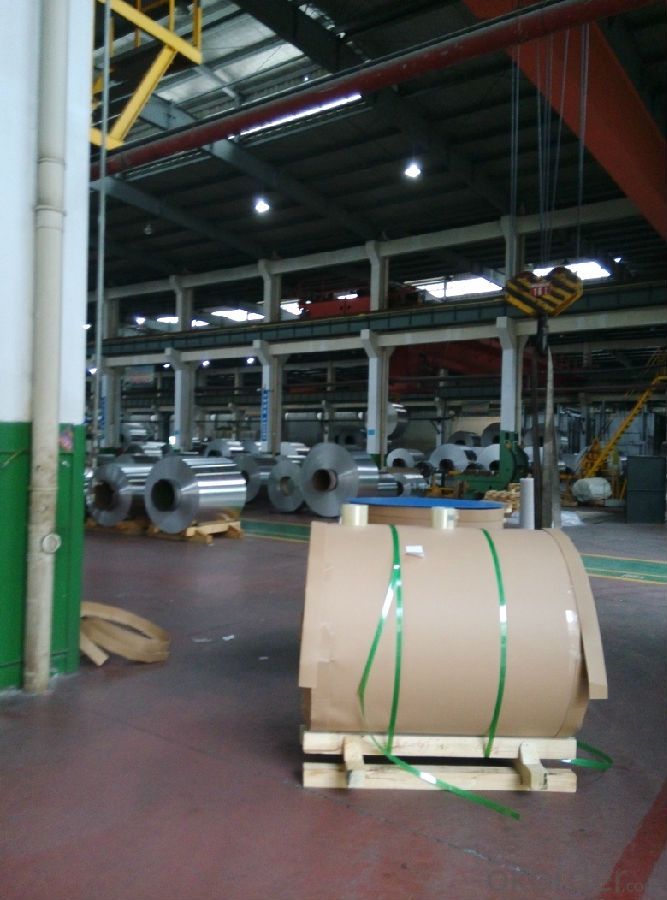
lCompany Profile
CNBM International Corporation, China National Building Materials (Group) Corporation, is one of the largest companies in China building
material & equipment industry, with 42,800 employees and sales in 2005 of US Dollar 4.395 billion. In 2006, China National Building Material Company Limited was listed on Hong Kong Stock Market with the stock code as 3323.
CNBM has been involved in aluminium products for about a decade. With advanced technology and equipment, our products have been sold to the worldwide including America, Europe, as well as South Asia, etc.
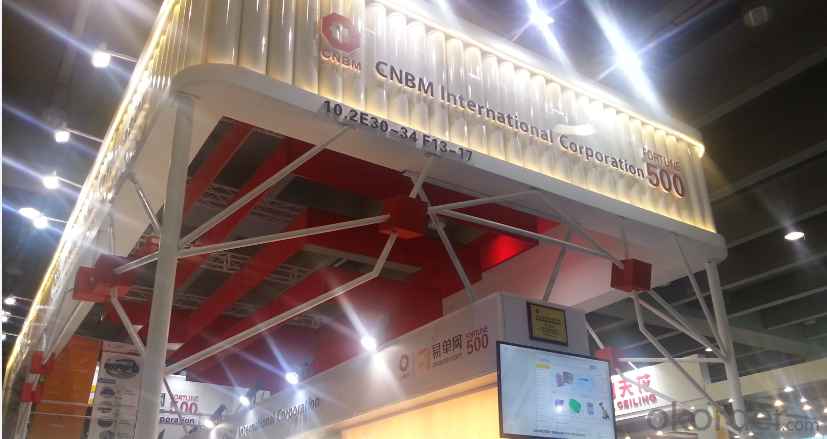
lProduct Images
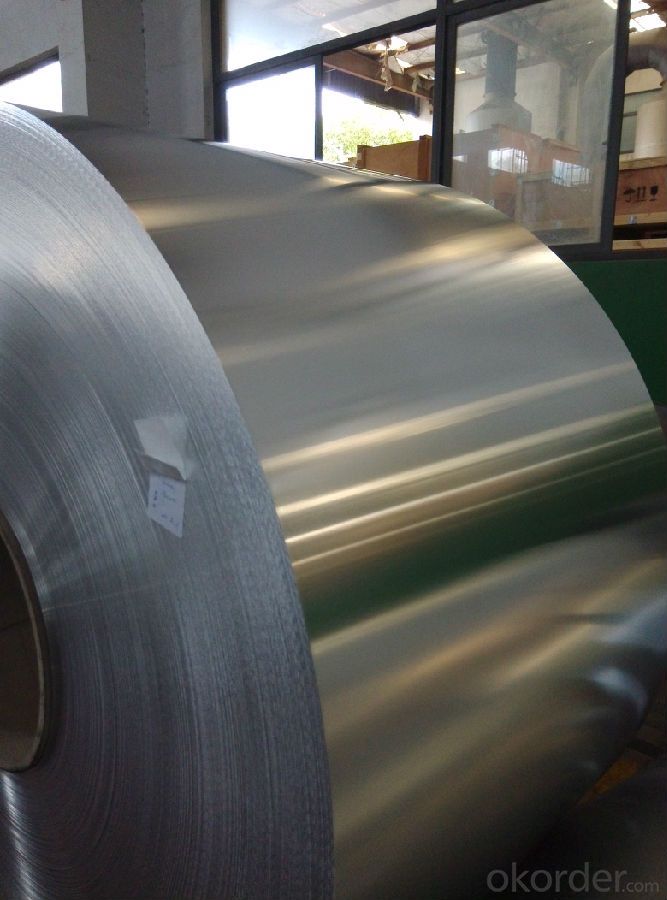
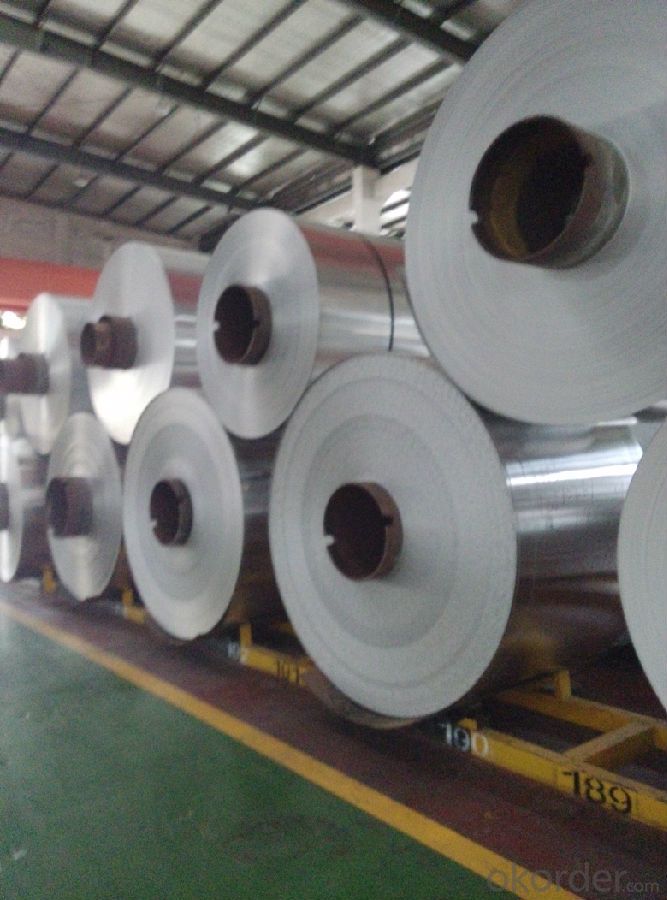
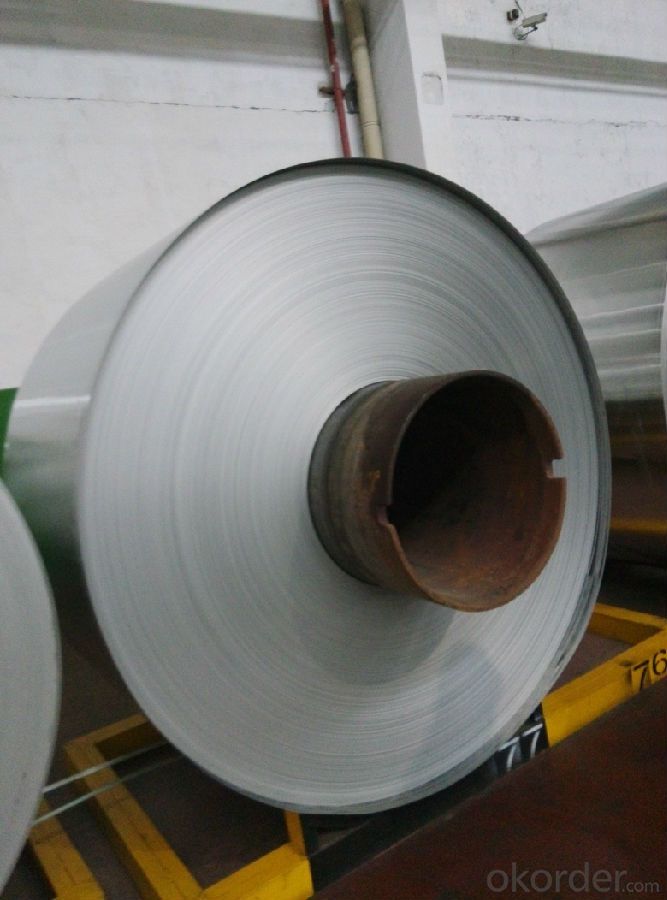
lCertificates
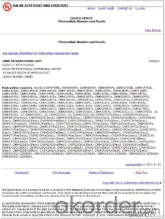
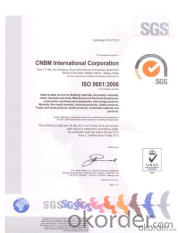
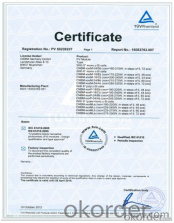
lFAQ
Q: Do you provide free samples?
A: Yes, free samples will be sent to you on freight at destination.
Q: Can I get your latest products catalogue?
A: Yes, it will be sent to you in no time.
Q: What is the MOQ?
A: 2.5 tons
- Q: How are aluminum coils used in HVAC systems?
- Aluminum coils are used in HVAC systems for their efficient heat transfer capabilities. They are typically used in air conditioning units and heat pumps to cool or heat the air that circulates through the system. The coils play a crucial role in the refrigeration cycle by absorbing heat from the indoor air and releasing it outside. The lightweight and corrosion-resistant properties of aluminum make it an ideal material for these coils, ensuring efficient and reliable performance in HVAC systems.
- Q: Can aluminum coils be used for window frames?
- Yes, aluminum coils can be used for window frames. Aluminum is a popular choice for window frames due to its lightweight, durable, and corrosion-resistant properties. It is also easily customizable and can be painted or anodized to achieve different aesthetics.
- Q: What is the typical hardness of aluminum coils?
- The typical hardness of aluminum coils can vary depending on the specific alloy and temper used, but generally falls within the range of 40-70 on the Rockwell B scale.
- Q: Can aluminum coils be used for electrical transmission lines?
- Aluminum coils find common use in electrical transmission lines due to their numerous advantages. Firstly, aluminum, being a lightweight material, facilitates easier and more cost-effective transportation and installation. Secondly, aluminum exhibits good electrical conductivity, comparable to that of copper. Thirdly, aluminum proves to be a more economical choice for long-distance transmission lines, as it is less expensive than copper. Nonetheless, there are certain challenges associated with employing aluminum coils in transmission lines. Notably, aluminum possesses a lower tensile strength than copper, rendering it more susceptible to sagging over extended distances. Moreover, aluminum boasts a higher thermal expansion coefficient than copper, potentially giving rise to complications related to thermal expansion and contraction. Nevertheless, through proper design and engineering, aluminum coils can be effectively and efficiently utilized in electrical transmission lines.
- Q: Can aluminum coils be used in the production of architectural façades?
- Yes, aluminum coils can be used in the production of architectural façades. Aluminum is a popular material choice for façades due to its durability, lightweight nature, and aesthetic appeal. The use of aluminum coils in façade production allows for easy customization, as they can be easily formed and shaped into various designs and profiles. Additionally, aluminum is resistant to corrosion, making it suitable for exterior applications. It also offers excellent thermal and acoustic insulation properties, contributing to energy efficiency and soundproofing. Overall, aluminum coils provide a versatile and efficient option for the production of architectural façades.
- Q: How are aluminum coils protected during shipping?
- Aluminum coils are typically protected during shipping by being wrapped in a layer of protective film or paper, secured with strapping or bands, and then placed on pallets or in crates. Additionally, they may be enclosed in metal or wooden containers to provide further protection against external damage during transit.
- Q: Can aluminum coils be used in power generation facilities?
- Aluminum coils are indeed suitable for use in power generation facilities. Aluminum, being a highly conductive material, offers numerous benefits for power generation applications. Its exceptional thermal conductivity allows for efficient heat transfer from the coils, a critical factor in cooling systems within power generation facilities. Moreover, aluminum's lightweight nature simplifies handling and installation, setting it apart from metals such as copper. This lightweight attribute also contributes to cost savings by reducing overall equipment weight. Additionally, aluminum's corrosion resistance is particularly valuable in power generation facilities, which frequently operate in challenging environments. In conclusion, considering their conductivity, thermal efficiency, lightweight nature, and corrosion resistance, aluminum coils present a feasible choice for power generation facilities.
- Q: What are the different surface treatments applied to aluminum coils?
- Aluminum coils can undergo various surface treatments to enhance their appearance, protect against corrosion, and improve performance. Some commonly used surface treatments for aluminum coils are: 1. Anodizing: By subjecting aluminum to an electrochemical process, an oxide layer is formed on the surface, boosting corrosion resistance and providing an attractive finish. Anodized aluminum coils are available in a wide range of colors and finishes. 2. Painting: Paint is applied to the surface of aluminum coils, offering a decorative finish and added corrosion resistance. Painted aluminum coils find frequent use in architectural applications where aesthetics are crucial. 3. Laminating: A protective film is applied to the surface of aluminum coils, forming a barrier against scratches, abrasion, and UV radiation. Laminated aluminum coils are commonly employed in applications that require durability and weather resistance. 4. Polishing: Aluminum coils are buffed to create a smooth and shiny finish, enhancing appearance and corrosion resistance. Polished aluminum coils are often used for decorative purposes, providing a luxurious appearance. 5. Brushing: Aluminum coils undergo a mechanical process to create fine parallel lines on the surface, resulting in a brushed or satin finish that can hide imperfections and scratches. Brushed aluminum coils are often chosen for applications that require a modern and sleek appearance. Ultimately, the selection of a surface treatment for aluminum coils depends on specific application requirements and desired aesthetics. Each treatment offers unique advantages in terms of appearance, corrosion resistance, and durability, enabling manufacturers and designers to choose the most suitable option for their needs.
- Q: Are aluminum coils susceptible to warping or bending?
- Yes, aluminum coils are susceptible to warping or bending due to their relatively low strength and flexibility.
- Q: This question asks if aluminum coils are suitable for use in cold weather conditions.
- <p>Yes, aluminum coils can be used in cold climates. Aluminum is a highly durable material that retains its strength and conductivity even in low temperatures. It does not rust or corrode, making it ideal for outdoor applications in cold weather. However, it's important to ensure that the aluminum coils are properly insulated and protected from extreme temperature fluctuations to prevent any potential damage. Additionally, the design and installation should consider the specific environmental conditions to maximize efficiency and longevity.</p>
Send your message to us
Acl Aluminum Coils Todd Rahman 3003 Alloy Anti-Corrosion Insulation Aluminum Coil
- Loading Port:
- Shanghai
- Payment Terms:
- TT OR LC
- Min Order Qty:
- 2.5
- Supply Capability:
- 5000 m.t./month
OKorder Service Pledge
OKorder Financial Service
Similar products
Hot products
Hot Searches
Related keywords
